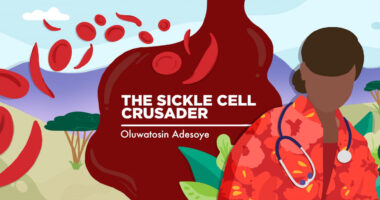Participants Sought for Trial Evaluating Olinciguat for Sickle Cell Disease

The Phase 2 STRONG-SCD clinical trial evaluating olinciguat as an investigational therapy for sickle cell disease is seeking participants.
Olinciguat, being developed by Cyclerion Therapeutics (a spin-off of Ironwood Pharmaceuticals), is an investigational oral therapy that stimulates an enzyme called soluble guanylate cyclase (sGC), known to play a key role in the production of nitric oxide. The therapy is administered as a tablet once-daily.
Evidence suggests that the symptoms of sickle cell disease may be associated with nitric oxide deficiency in the blood. Nitric oxide, a free radical produced by several cells, is used as a signaling molecule that promotes blood flow.
The stimulation of sGC can restore the bioavailability of nitric oxide in the blood to increase blood flow, which may stop the destruction of blood cells and help address disease symptoms.
Olinciguat is being evaluated in the Phase 2 STRONG-SCD clinical trial (NCT03285178), which plans to enroll 88 patients, ages 16 to 70, at 26 sites in the U.S..
Participants will be randomized to three ascending doses of olinciguat — a low, medium and high dose — or a placebo for 12 weeks.
The company recently decided to include a fourth, higher dose level after encouraging data on olinciguat’s tolerability from a separate study with ascending doses in healthy volunteers, along with safety data from the ongoing STRONG SCD study.
The trial’s main objective is to assess olinciguat’s safety and tolerability, along with the therapy’s pharmacokinetics (how the body processes the drug). Additional parameters include assessing the therapy’s effects on daily symptoms and biomarkers of disease activity.
Top-line results from the STRONG-SCD trial are expected by mid 2020.
“Cyclerion launched with the mission of developing life changing medicines for patients suffering from serious and orphan diseases through the modulation of soluble guanylate cyclase,” Peter Hecht, PhD, chief executive officer of Cyclerion, said in a press release.
“Our team is advancing a pipeline of differentiated and wholly owned sGC stimulator therapeutic candidates with compelling preclinical and clinical data. Each program targets a devastating disease with limited, if any, treatment options. We look forward to an eventful and data-rich year ahead with anticipated clinical readouts, as well as continued progress on our preclinical programs,” he added.
In June 2018, olinciguat received orphan drug status by the U.S. Food and Drug Administration (FDA).






